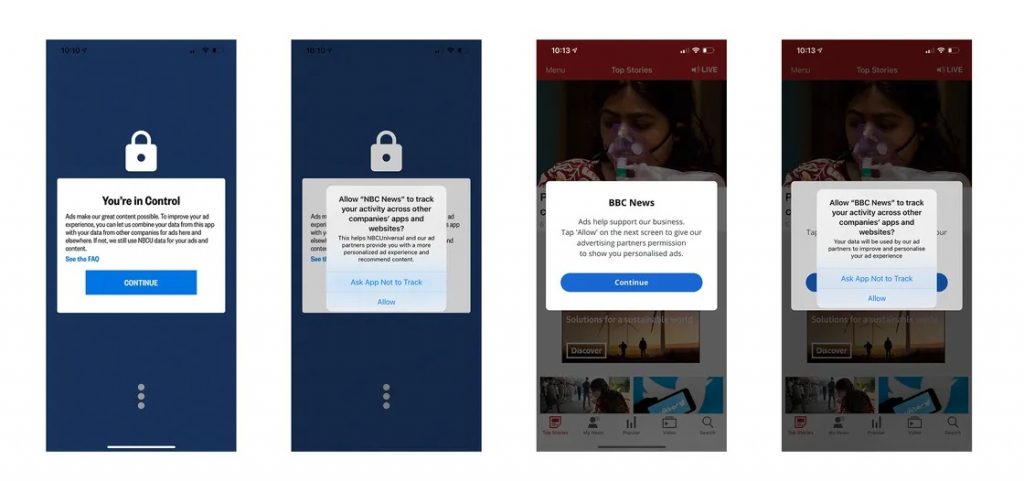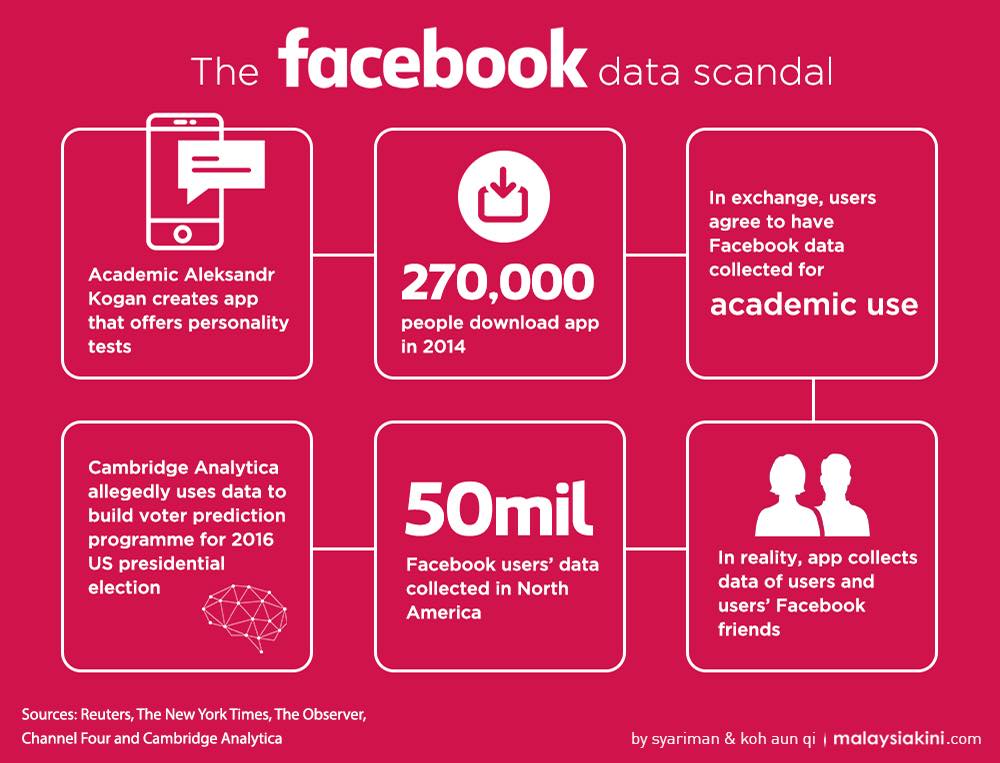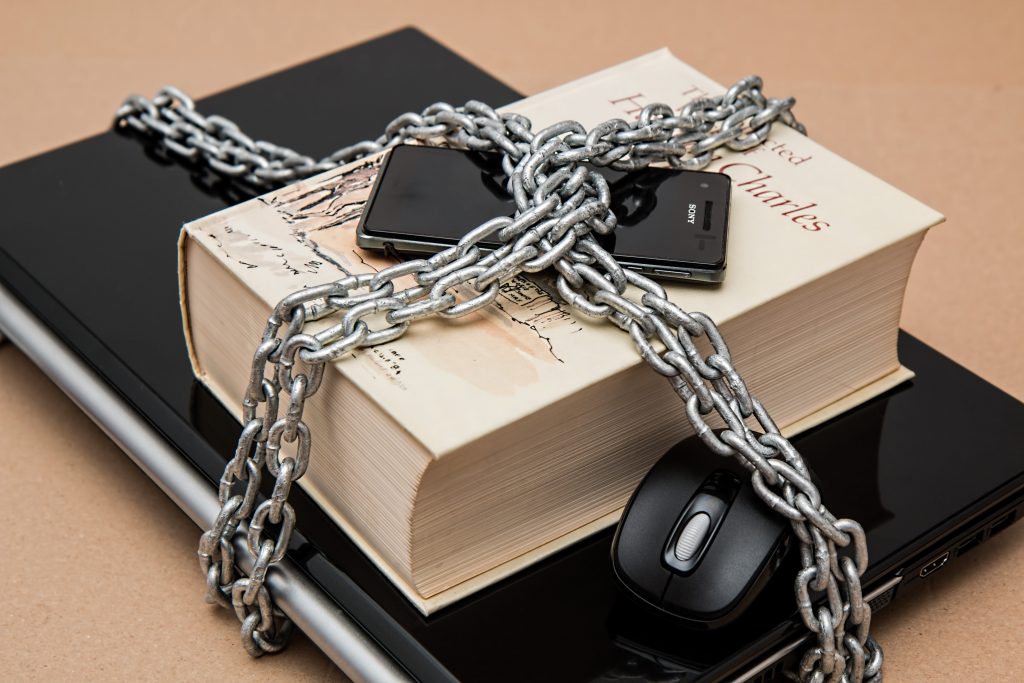Data. The buzzword of the 21st Century. The most expensive and the most exploited asset in the world.
But data privacy is something we are not as concerned about, as we should be.
Smartphones and tech firms have been guilty of stealing our personal information for a long time. But times are about to change. In April 2021, Apple launched the anticipated new iOS version, 14.5, and it has been a game-changer. Their data privacy policies can usher in a new era for smartphone users to take the power back into their hands.
Our smartphones connect us with the whole world. These incredibly powerful devices have become mini-sized personal assistants for our day-to-day lives. We can’t even imagine many activities where our smartphones contribute actively.
Why should you care about data privacy?
Let’s imagine a scenario.

It’s a relaxing weekend. You wake up a bit early for your morning exercises. After the sweating workout sessions, you come to your room, take some rest and get something to eat. While sipping on a cup of green tea, you wish to cook a special lunch for your family. But in the pandemic, you can’t really go to the market and stroll around to discover the finest produces.
So, you pick up your phone and search for online shops to do grocery shopping in your area. You get to an online vendor, fill up your cart with seafood, green vegetables, herbs, and some pasta. Suddenly you want to get the fitness tracker that just dropped in the market. You pick that one as well, head to the checkout, and pay the bill using your credit card.
You look at your calendar and realize you haven’t paid your electricity bills this month. So, you proceed to check that off your to-do list as well.
Then you book the ticket for a blockbuster folk concert you were eagerly waiting for. Since we’re all locked in our homes, why not find some live entertainment online?
While you wait for your grocery bags full of leafy veggies and fresh fish to arrive, let us analyse all the data you exposed in this small window of activities.
What can we find?
Firstly, the obvious information – Your contact number; social media info; grocery list; electric bill receipt; your concert ticket ID; credit card information etc.
Secondly, the not-so-obvious assumption –
- You buy products for your fitness and health.
- Fancy food is what gets your family going.
- Folk music holds a special place in your heart.
- Efficient electric appliances is on the top of your shopping list.
The small transactions you performed this morning reveals all these data to the parties you have dealt with. Next time when you visit that e-store or your Facebook feed, don’t be surprised to see ads of guitars, gym equipment, LED lighting or new restaurant openings in your area!

Just like this, mobiles store every residue as data exhaust. That includes every single task that we do on our phones, every decision we take, and every information we exchange. These unique data points construct our trail of digital footprint. As we mentioned, the privileges we get – come at a steep cost. Smartphone companies pass on our data for commercial purposes behind our backs. More importantly, these phones do not let us choose the information we share!
Data, data everywhere
“Data is wealth” has already become a cliched saying. In fact, Smartphones regulate the insane amount of data we navigate every day. They carry the basic identity info that we share with strangers, like our names, contact numbers, and social media handles. They know what we want to know, where we’re planning to go, which Instagram celebrities we’re obsessing over, which restaurant we’ve ordered our lunch from or what makes us happy, afraid, insecure and whatnot. All the critical, sensitive info we put in them – financial data, bank account numbers, medical records, credit card pins etc. are accessible by our mobiles.
From a commercial point of view, these pieces of information are crucial for market research and help to create a clearer picture of our consumer persona. Our little pocket buddies use a sleek technology called advertising ID. These are software protocols that welcome companies into our phone’s locus so that they can categorize the ‘audience’ and ‘target’ their campaigns to their desired customer pool. Android mobiles use an advertising ID named AAID, and that of an Apple device is called IFDA.
Why is iOS 14.5 such a big deal?
For years and years, smartphone companies and tech firms have unethically amassed a huge amount of personal data, and they continue to do so. With IDFA enabled in iPhones by default, apps could monitor how our footsteps across the whole internet. Our devices were prone to data breaches and we had no control over which data the external forces could use. This is where Apple steps in.

Apple has upped their software game. They have introduced multiple privacy features in their latest OS update, iOS 14.5. But the most crucial one is what we’re discussing right now. iOS 14.5 gives its users the power to restrict apps and websites from tracking their personal data. Now, app developers must seek permission from the user before monitoring device info. Apple puts user preference to the core and centre of the data debacle. Now, users have total control over who can use their information. This is a small but bold step to restate transparency in smartphone devices. Apple’s decision to leave IDFA control to users’ hands have irked the business motive of many tech giants like Facebook, Google, Amazon among others. Facebook went the extra mile to publish newspaper ads against the invisible control they are about to lose.
When data privacy practices go wrong
With each year, data privacy violations are becoming more and more common. One of the most blatant examples was the Cambridge Analytica scandal in 2016. The much-discussed political data analysis launched an innocent-looking personality quiz app for Facebook users. When 270,000 curious users tried to install the app, they agreed to the T&C of the app without reading it – like every one of us does. This sneaky attack led to the data hijacking of 50 million Facebook users. Moreover, the captured information was handed over to Donald Trump’s election campaigners in the same year. They manipulated the data and targeted millions of voters with wishful advertising. This tilted the said election into the Republicans’ favour and shook the core of the US democracy. The backlash to this incident led to a mass Facebook exodus, researchers noticed.

Want to keep your data ‘private’?
In the era of the internet, we are globally interconnected through data exchange. However, data privacy is a fundamental human right for the safeguard of one’s security. It’s imperative that you take care of your important data. Not only for yourself – but also for the greater good! It will preserve you from various risks starting from identity theft to data scandals. It will also protect your accounts and numbers from malicious threats from hackers and scammers. These are some of the steps you could take, at least.

Dos
- Use a trusted VPN to surf the web
- Install a password manager for your private codes and pin
- Always put adblockers in your browsers
- Be careful of your internet activities
- Store sensitive info as encrypted (zip) files in your cloud storage
- Move away from ad-based services (Looking at you, Googles and Facebooks of the world !)
Don’ts
- Don’t leave cookies lying around in your browser
- Don’t share all your whereabouts on social media, 24/7.
- Don’t give suspicious third-party sites access to your device or accounts
- Don’t stay logged into other people’s devices after your work is done
Protection of personal data has been a matter of hot debate over the past few years. Tech firms spent years and years in futile debates, leaving the consumers in jeopardy. Now, with iOS 14.5, Apple has done what none other could do earlier – that is to draw the line where they should all stop. Now it’s time for other tech companies to follow suit and ensure a world with fair and secure usage of data.
Remember: Your data is your identity. Please do what is necessary to secure yourself.
Subscribe to our Newsletter for the latest updates and insights on technology!


























Leave a Reply